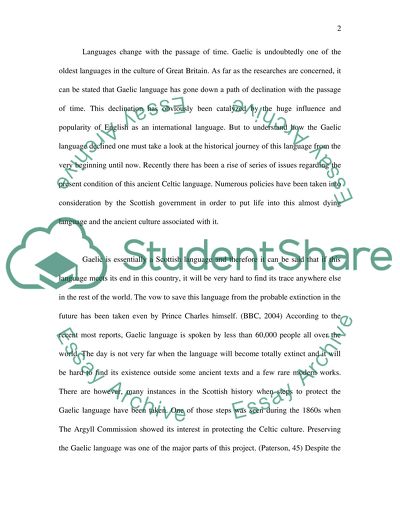Cite this document
(“Gaelic Language Essay Example | Topics and Well Written Essays - 4000 words”, n.d.)
Retrieved from https://studentshare.org/humanitarian/1509000-gaelic-language
Retrieved from https://studentshare.org/humanitarian/1509000-gaelic-language
(Gaelic Language Essay Example | Topics and Well Written Essays - 4000 Words)
https://studentshare.org/humanitarian/1509000-gaelic-language.
https://studentshare.org/humanitarian/1509000-gaelic-language.
“Gaelic Language Essay Example | Topics and Well Written Essays - 4000 Words”, n.d. https://studentshare.org/humanitarian/1509000-gaelic-language.


